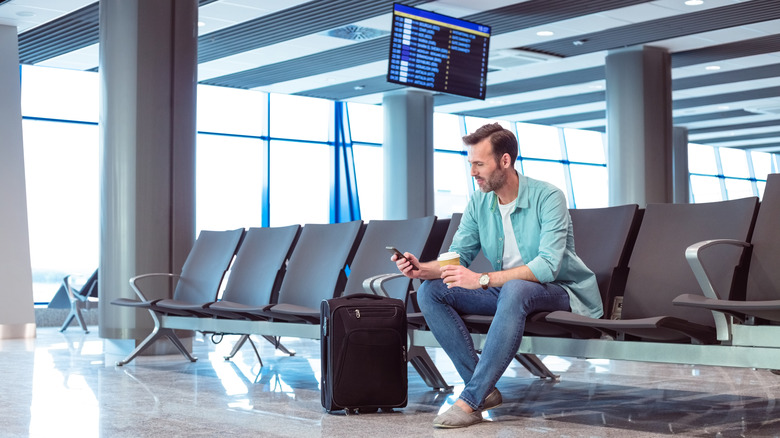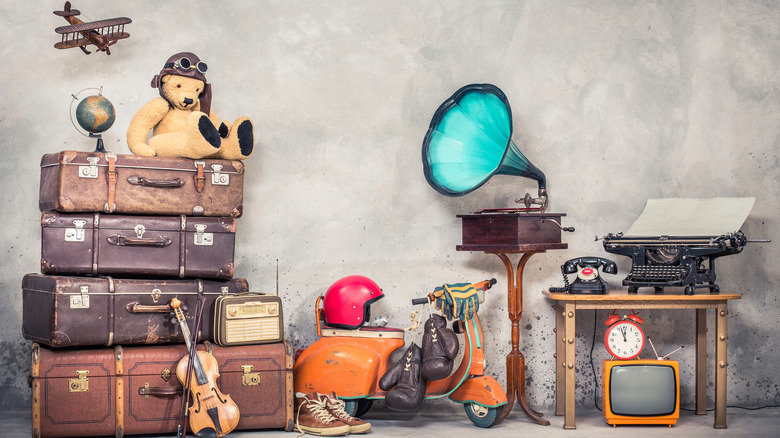What Really Happens To Your Lost Or Left Behind Items At An Airport
Airports have many secrets, from TSA agents pocketing misplaced cash to security scanners that fail to identify the majority of potentially dangerous items passing through them. But one of the biggest mysteries is what happens to lost luggage. If you lose an item — or worse, a whole bag — at an airport, it can feel like it's been swallowed into the abyss and is swimming around somewhere in the space between dimensions. The truth is much more banal: The items are snapped up and sold off.
According to Société Internationale de Télécommunications Aéronautiques (SITA), tens of millions of bags are lost or stolen at airports each year. And you're five times more likely to lose your luggage on an international flight than a domestic one. Information sharing between airports and airlines is notoriously inconsistent — don't be surprised if you end up bouncing between customer service departments while trying to track your bag down. The entire process isn't just bad for customers; it costs the industry $5 billion a year.
It's frustrating, but also unsurprising, that airports want to get rid of all this loot quickly — and to make a quick buck on the side if they can. In the U.S., items are shipped to auctioneers and sold at government surplus stores or online, with the profits going to state governments. In the U.K., they go to prominent auction houses like Greasby's in London or Mulberry Bank in Glasgow. Countries in the European Union, like Germany and the Netherlands, employ similar methods.
What's a lost luggage auction?
There are safeguards you can take against losing bags. For a start, stay clear of JFK, notorious for lost luggage, or consider a baggage handling service like Luggage Free or LugLess. You could avoid carrying black luggage (the easiest to steal) or use this trick to prevent theft. But what if your bag goes missing and you can't track it down? Eventually, after a period of up to 100 days (at which point airlines tend to give up trying to track down an owner), it will be shipped off to auction or a third-party seller. Once that happens, you're almost certainly never getting it back.
You can, however, buy other people's lost luggage, a booming pastime now known as "suitcase gambling." People are so intrigued by the act of rummaging through another individual's personal effects that TikTokers have amassed millions of views doing just that. Generally, at lost luggage auctions, you're bidding blind. In person, you might get to feel the suitcase, and therefore be able to guess its contents, but online bidders will be shooting in the dark. Some items may be of value, like electronics, perfume, and cash, whereas ill-fitting clothes or souvenirs might be best placed on the shelves of a charity shop.
Consult your local airport to see if it hosts in-person auctions or online auctions on platforms like GovDeals. Unclaimed Baggage in Scottsboro, Alabama, is the largest buyer and seller of lost luggage in America. Over the past 55 years, it has uncovered items of every description, so environmentally conscious shoppers should check the shop's online stock.

